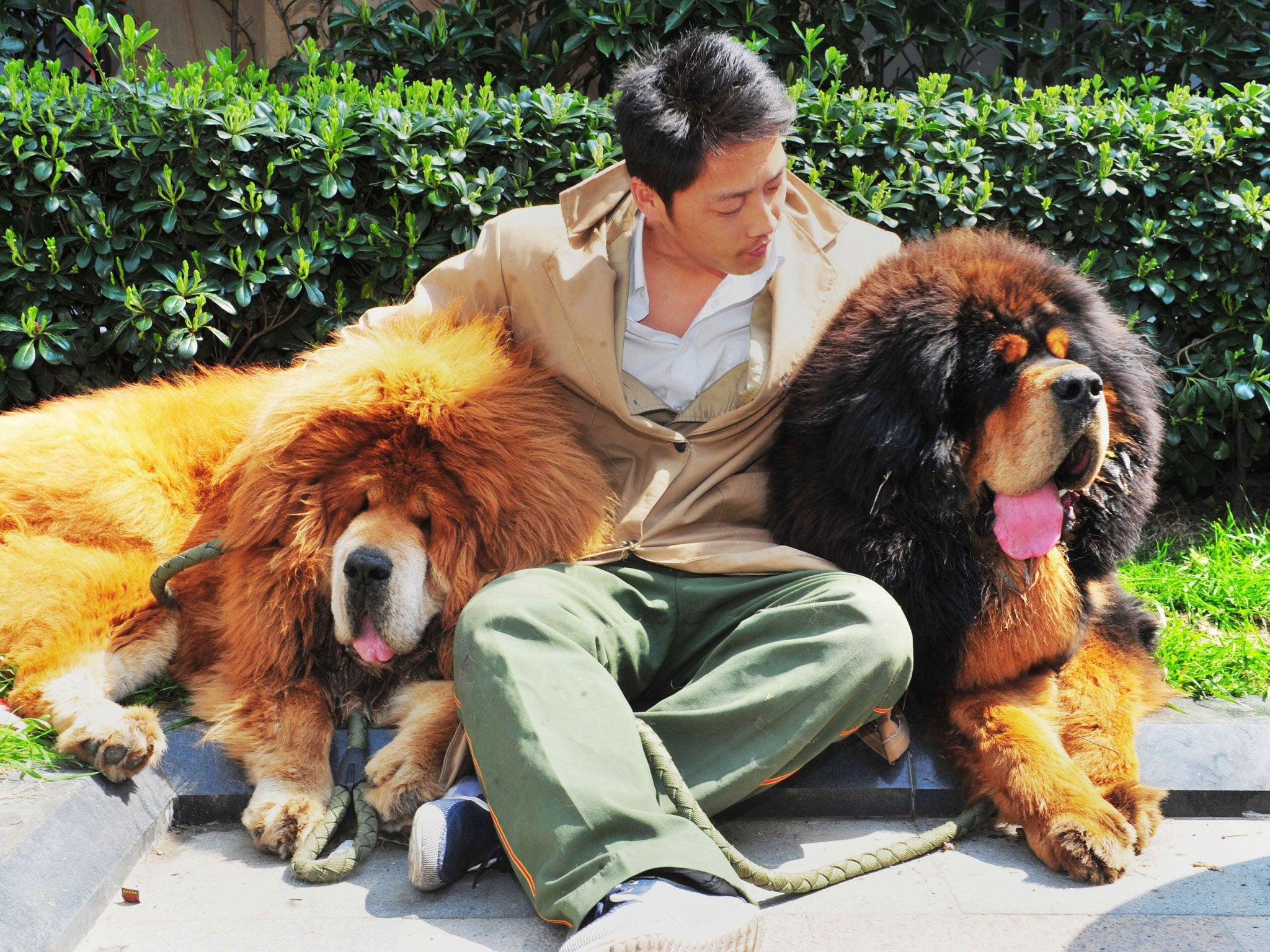Shaggy dog story: Were two Tibetan mastiffs really sold for £1.75m in China this week?
Is this curious incident of the million pound ‘status symbols’ true?

Your support helps us to tell the story
From reproductive rights to climate change to Big Tech, The Independent is on the ground when the story is developing. Whether it's investigating the financials of Elon Musk's pro-Trump PAC or producing our latest documentary, 'The A Word', which shines a light on the American women fighting for reproductive rights, we know how important it is to parse out the facts from the messaging.
At such a critical moment in US history, we need reporters on the ground. Your donation allows us to keep sending journalists to speak to both sides of the story.
The Independent is trusted by Americans across the entire political spectrum. And unlike many other quality news outlets, we choose not to lock Americans out of our reporting and analysis with paywalls. We believe quality journalism should be available to everyone, paid for by those who can afford it.
Your support makes all the difference.Flamboyant cash splurges are becoming increasingly common in China, as a new moneyed generation seeks to show off its disposable yuan with flashy sports cars and designer clothes. But it seems as if a particularly prominent status symbol was snapped up this week, with a dog breeder yesterday claiming that he had been paid 18 million yuan (£1.75m) for twin Tibetan mastiff pups.
The breeder, Zhang Gengyun, says that he sold the hounds, known for their slobbery habits, to an unnamed 56-year-old property developer from Qingdao at a dog-expo event on Wednesday in the eastern province of Zhejiang. One of the twins, boasting a fine mass of golden hair, accounted for 12 million yuan (£1.17m), making it the most expensive dog in the world. His red-haired brother went for six million yuan (£583,000).
Pure-bred Tibetan mastiff puppies go for £900 in the UK, so why do the Chinese pay such eye-watering sums? As well as turning heads when taken for a walk, dogs of such size are closely linked with wealth and high status in China. Big import costs for some large breeds mean many who own them are of a certain standing. Until recently, dog licences cost more for larger dogs than for smaller ones in many regions. You had to be a big dog to own a big dog.
Zhang claimed that the breed has lion’s blood, saying it was the golden-haired dog’s “drop-dead-gorgeous face” that helped him to secure the record-breaking figure. “Pure Tibetan mastiffs are very rare, just like our nationally treasured pandas, so the prices are so high,” he added. “People consider it a symbol of higher social status.”
However, Jeff Springham, the chairman of the Tibetan Mastiff Club of Great Britain, wasn’t convinced. “It’s worth pointing out that these dogs are really the Chinese version of the Tibetan mastiff, not the pure breed as such,” he says. “They’ve crossed Tibetan mastiffs with Neapolitan mastiffs, St Bernards and chow chows to get the extra size and coat. They’re not really an accurate portrayal. The proper Tibetan mastiff breeders that live in China call these dogs ‘pig mastiffs’. They think they’re just horrible.”
Sure enough, this week’s sale has aroused suspicion among some Chinese experts. “It’s just like deals done when buying antiques,” Liu Na, the organiser of a Beijing-based mastiff event, says. “It isn’t uncommon for a breeder to hype a price to raise his profile in the industry, just like a celebrity can inflate his or her appearance fee.”
Despite Zhang’s claim that the sale was the “real deal”, Springham adds, “There’s no proof the money is actually changing hands, so it might be that they are artificially pushing the price up. The people buying these dogs are the new rich; it’s simply an expression of their wealth.”
If the sale was indeed as reported, the canine has leapfrogged a fellow Tibetan mastiff, aptly named Big Splash, who sold for 10 million yuan (£973,000) in China to a coal baron in 2009, in the worldwide league of pricey pooches.
So what can the unnamed owner expect from his new charges? Tibetan mastiffs are known to be stubborn, but loyal and laid-back. Springham warns against them for first-time dog owners, however. “They can take a bit of getting used to,” he says.
The dogs tend to enjoy a long life. “They’ll live to 10 or 12 years, which is really good for a big dog,” Springham says. Unfortunately, he also reckons that the twin dogs sold this week might live until only five or six because they were crossed with other breeds.
As for those breeds including Panthera leo blood, as claimed by Zhang, that seems to be pure mythology. Though that didn’t stop a zoo in the country’s Henan province from trying to pass one off as an African lion in August last year. The scam was exposed only when a mother who had taken her son to see the “lion” heard it bark.
Join our commenting forum
Join thought-provoking conversations, follow other Independent readers and see their replies
Comments